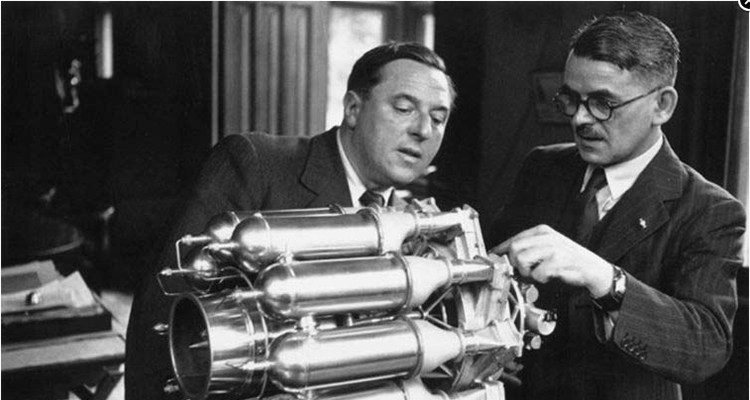At the time Albert Einstein submitted his paper on the special relativity theory, the ideas he brought forth were so radical that only a handful could grasp how ingenious they were.
Like an antique ruby in the hands of an inept jeweler who cannot realize its worth, such was the idea of Einstein in the hands of many scientists of the day.
It took Europe’s then greatest theoretical physicist Max Planck to recognize how valuable the paper was, and accord it the deserved response.
A different thinker
What Einstein brought to the table was a completely new outlook of things, which was crucial to his career, because he would go ahead to challenge conventional scientific concepts.
This is no easy feat; it requires a different kind of a thinker.
Einstein wouldn’t settle until he had the mysteries of the universe unraveled. In his endeavors, he would eventually shape the way we understood gravity, toppling Sir Isaac Newton’s theory of gravity.
Through thick and thin, he ushered science and technology to a new era.
Einstein stands out among the world’s most impactful personalities. One thing with such people is how their ideas are filled with novelty.
The world is never static; it craves for something new as fast as it spins around its orbit.
A progressional world

The world today is insatiable; it keeps looking for new ways of doing things. It’s common for things considered trendy or up-to-date to become obsolete and unworthy. It’s always about the next big thing.
In this sense, it wouldn’t be wrong to say that the world is progressional. Everyone wants to get a notch higher today than yesterday.
No one is sitting comfortable
Militaries are ever involved in research to discover better artillery.
Pharmacists are always working to find new and more effective medicine.
Banks are also ever interested in more secure systems.
Even hackers are ever prying into purportedly secure networks in search of new vulnerabilities.
Corrupt people are also inventive; ever eager to find new ways of looting without arousing suspicion.
Viruses are also getting more dangerous as they mutate everyday, and we have to keep up by developing better vaccines.
Clearly, no one wants to sit too comfortable in their current position. The world is moving too fast for anyone to sit around satisfied with their achievements. Advancing to the next big thing is the motto.
Changing status quo
Advancements are achieved when old notions are challenged and eventually toppled out of place by new ideas.
To challenge ideas which have been accepted as status quo requires seeing things with a different eye. It requires being unsettled by circumstances and deciding to confront them head on.
Turbojet pioneers
One case study of this is the two men responsible for steering aviation into an era of fast and comfortable flights.
In the age of propeller engine airplanes, Frank Whittle and and Hans von Ohain sought to advance the aviation industry into a new propulsion technology.
Both are credited for the invention of the turbojet, probably the most revolutionary invention in aviation history.
Before turbojet engines, planes were powered by propellers, carrying a limited number of passengers and flying at a maximum speed of up to about 300 km/h. But with the turbojet, huge passenger airplanes today can go as fast as 1000 km/h.
Unsatisfied and stubborn for change

Frank Whittle was an exceptional army pilot who always wanted to fly faster than the day’s planes could.
Sometimes he would flout his commander’s instructions trying to out-fly his plane beyond the bounds of its ability, and end up crashing.
His ego for speed was simply too overwhelming for a laggard plane.
His German counterpart Hans von Ohain was a physics student and an aviation enthusiast. He had always desired to fly in a plane.
But when the the opportunity finally came his way, he was not impressed by the flying experience.
A firm resolve
Propeller planes flying at top speed would often be very noisy, with lots of vibrations and exhaust fumes.
This didn’t make a very good impression on Hans, and so he resolved to invent a new propulsion system for planes to fly faster and steadily.
These two men, Hans and Whittle each on their own embarked on creating a working solution for their turbojet ideas. Both were unsatisfied by propeller engine planes.
The eventual success of these two men pushed the aviation industry into a new era of turbojets.
The immense reward of novelty
Novelty rewards immensely. Giant leaps made in aviation after the turbojet was invented are testimony enough.
Turbojet engines revolutionized aviation. Planes could now move faster and comfortably.

Today, the giant passenger planes we fly on, cruising effortlessly despite their size are powered by engines essentially working in the same principles Whittle and Hans developed.
It is no doubt that novelty can greatly turn around the prospects of anything it touches.
Wanna make some impact?

Novelty poses a challenge to anyone who would want to make an impact in today’s progressional world.
Ground breaking achievements have been made by people whose thought process was novelly; exceptional from the rest in that it took on a different approach, sometimes even considered outlandish.
When the thought process is hinged on novelty, it becomes impossible to settle for unpleasant circumstances.
Therefore the mind keeps on working out solutions for everything that falls short of its expectations.
Novelty is refusing to accept that nothing can be done, shamming the notion that all that could have been done has already been done.
But novelty comes at a cost – sweat and blood; through relentless pushing for one’s ideas.
People often do not see the work behind a ground breaking invention. The reality is that novelty embarks one on a tough journey, but the passion makes it all worthwhile.
Set yourself to novelty, and you might just be headed for a big reaping.

